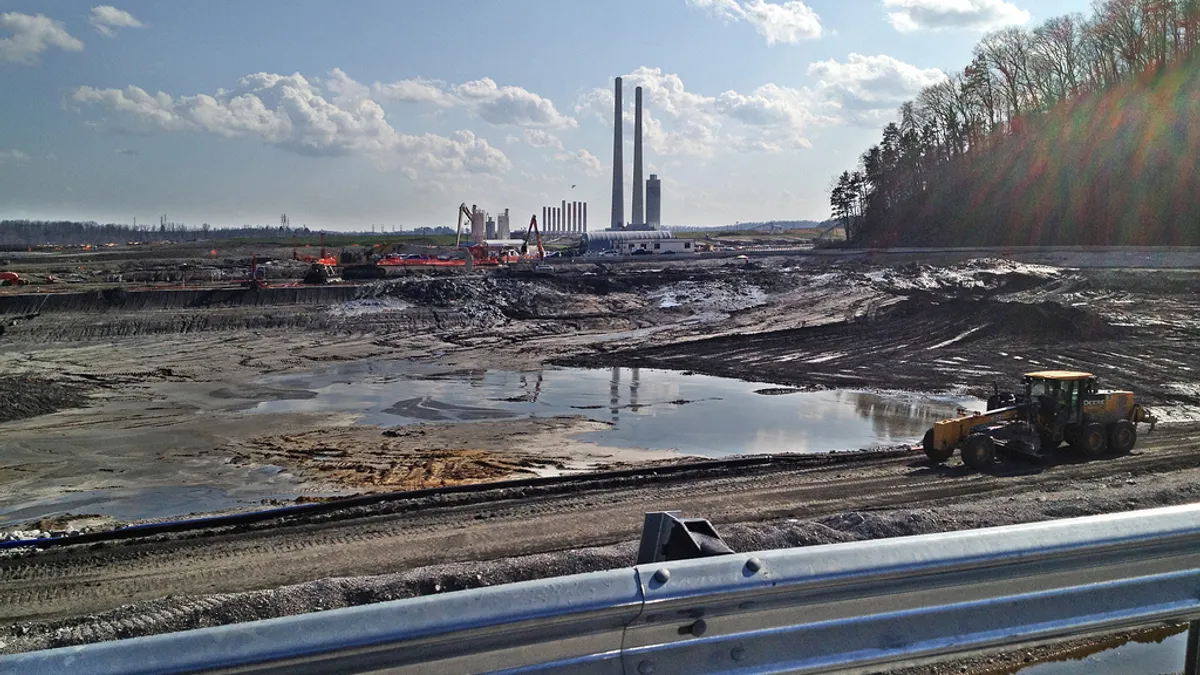Dive Brief:
- Duke University scientists conducted a study of North Carolina and four other southeastern states, finding evidence that coal ash ponds consistently taint nearby lakes, rivers, and groundwater near disposal sites and could linger for years, The Charlotte Observer reports.
- The study surveyed state data from 156 wells that monitor groundwater under North Carolina ash ponds and found high levels of boron, an indicator of coal ash, in 58 of those wells. Signs of contamination above federal levels were discovered in 48 of those wells.
- The Southern Environmental Law Center, a citizen advocacy group embroiled in a series of lawsuits with Duke Energy over charges relating to coal ash contamination, funded the study. The N.C. Department of Environmental Quality said it hasn't reviewed the study yet, and offered no comment on the findings.
Dive Insight:
Adding yet another layer to a complex issue in the Southeast over coal ash, a new study from Duke University sheds light on the longevity of contamination from coal ash waste in groundwater.
In addition to observing coal ash ponds in North Carolina, Duke University scientists also observed the effects coal ash ponds leaking into rivers and lakes in Tennessee, Kentucky, Georgia and Virginia. The study concludes that the presence of over 500 coal ash ponds in the southeastern U.S. points to significant releases of contaminated water into the environment, according to The Charlotte Observer.
At all 21 power plants in the study, scientists found concentrations of toxic metals, such as arsenic,above federal standards as well as selenium in 29% of samples from water near sites. Those levels of toxicity that may threaten surrounding populations and wildlife.
Other tests have already pointed to contaminated groundwater under all 14 of Duke Energy's power plants in North Carolina. In 2014, the utility revealed in regulatory filings that it had identified an estimated 200 leaks and seeps at 32 coal ash storage sites, with the leaks releasing over 3 million gallons of contaminated wastewater daily.
Even so, Duke Energy says there is no evidence that contaminated groundwater has reached communities nearby. The company says that it found support in the study for its position that coal ash does not actually need to be excavated from many of its ponds in North Carolina, the news outlet reports.
“It’s interesting that this Duke University study, funded by SELC, recognizes that even excavation is not a one-size-fits-all solution, and that smart closure requires ongoing monitoring and engineering – exactly the approach we’ve been advocating,” spokeswoman Erin Culbert told the Charlotte Observer.














